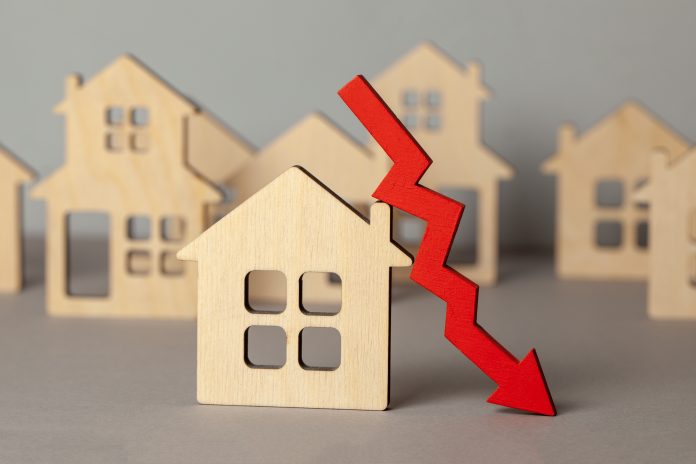For the first time this year, house prices are going down but experts believe the fall is due to holidays, not rate rises
UK house prices have fallen for the first time this year. Rightmove has released figures showing that the average price of a UK property dropped to £365,173 in August, marking a 1.3%, or £4,795, decline.
Are deteriorating economic conditions or summer distractions to blame?
Are deteriorating economic conditions or summer distractions to blame? Experts argue that it is the latter.
Summer holidays pushing UK house prices down
Why are UK house prices going down? Summer holiday distractions could well be the answer.
Rightmove reports that it is normal for prices to drop in August. In fact, house prices are going down by 1.3%, which is in line with the average August drop over the past ten years.
Instead, people are prioritising their summer holidays. Individuals wanting to move become distracted by their summer plans and temporarily put moving house on hold until the Autumn.
Then there are those who want to sell fast. On average it takes 136 days to complete a sale. Some new sellers are pricing their homes more competitively so that they can quickly secure a buyer, avoid the lengthy buying and selling process and move into their new homes in time for Christmas.
A drop in asking prices is to be expected this month
Rightmove’s Director of Property Science, Tim Bannister, provides further insight: “A drop in asking prices is to be expected this month, as the market returns towards normal seasonal patterns after a frenzied two years, and many would-be home movers become distracted by the summer holidays. Indeed, for those that can, this may be their first summer holiday abroad since before the pandemic.
“Sellers who want or need to move quickly at this time of year tend to price competitively in order to find a suitable buyer fast, with some hoping to complete their move in time to enjoy Christmas in a new home.
“To achieve that this year, they’d need to beat the current average time between accepting an offer and completing the sale of four and a half months. Nevertheless, we’re still expecting price changes for the rest of the year to continue to follow the usual seasonal pattern, which means we’ll end year at around 7% annual growth, even with the wider economic uncertainty.”
Interest rates rise from 0.5% to 1.75%
Of course, the sixth consecutive interest rate rise, this time by 0.5% to 1.75%, will no doubt influence home-buyers.
With the cost of living skyrocketing, individuals wanting to buy may re-consider what they can afford to borrow and repay each month.
Currently, the imbalance between supply and demand continues to be the biggest actor influencing asking prices outside of seasonal trends. This imbalance is massive despite demand slowing and supply constraints improving.
This month, buyer demand has fallen by 4% on the market of 2021 but is sitting at 20% higher than in 2019.
Furthermore, new listings are up by 12% on the same period last year, but this is still 6% down on 2019. Available stock is down 39% on 2019.
Several indicators point to activity in the market continuing to cool from the lofty heights of the last two years
“Several indicators point to activity in the market continuing to cool from the lofty heights of the last two years. It’s likely that the impact of interest rate rises will gradually filter through during the rest of the year, but right now the data shows that they are not having a significant impact on the number of people wanting to move.
“Demand has eased a degree and there is now more choice for buyers, but the two remain at odds and the size of this imbalance will prevent major price falls this year. For those looking to move who are concerned about interest rate rises, it’s important that they get a mortgage in principle early on in their moving journey to understand what they could afford to borrow, and find out about the rates available to them to assess what they are able to repay each month,” adds Bannister.
August marks 20 years since Rightmove started producing its House Price Index. In those 20 years, the national average asking prices have more than doubled (+134%), from £155,994 to £365,173, outstripping both salaries and general inflation.











